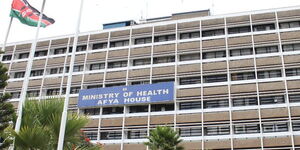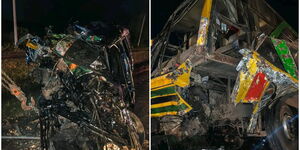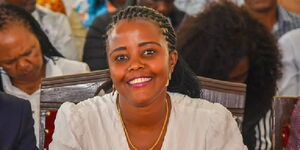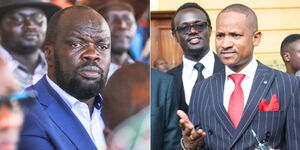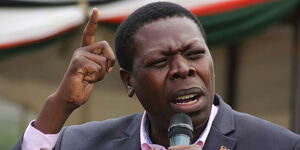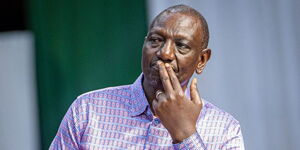Representatives from the Kenya National Commission on Human Rights (KNHCR) on Saturday, June 10, explained the three changes that would be effected in schools across the country if the Intersex Bill 2023 sailed through Parliament.
While appearing on Citizen TV, Veronica Mwangi, the head of the Intersex Person's Implementation Coordination Committee Secretariat, highlighted the importance of the changes noting that they guaranteed intersex persons access to quality education.
She added that according to the 2019 census report, the number of intersex individuals had grown to more than 700,000 and the bill was a call to the Ministry of Education to ensure inclusivity.
Among the changes included the introduction of gender-neutral uniforms, gender-neutral washrooms and gender-neutral accommodation facilities for boarding schools.
“Guaranteeing safety, accessibility and intersex inclusive programmes by progressively including the provision of private and sanitary toilets, washing facilities, accommodation facilities and uniforms that are neutral or if designated by sex, by allowing the intersex learners to use the facility and uniform that accords with the learner’s self-recognised sex,” the bill read in part.
Mwangi explained that Intersex persons were individuals born with ambiguous characteristics and, therefore, could not be categorised as either male or female.
Additionally, she noted that it was important for school administrations to accommodate intersex learners arguing that the reality of Kenyan households was that both male and female individuals shared the same facilities.
“When looking at the toilets being gender neutral, the discussion should reflect the reality of our lives back at home. Do we have toilets that are marked male or female or do we use the same toilets?
“We are not saying change all the toilets and make them gender neutral, all we are saying is that the school administration puts in measures to ensure that the intersex learners are accommodated,” Mwangi explained.
Dennis Wamalwa, a Commissioner at KNHCR and an intersex person reiterated the challenges they faced explaining that the bodies of intersex individuals changed during puberty and it was difficult to socialise with either the female or male sex.
Additionally, he noted that it was important for intersex individuals to be recognised as such even in birth documents unless they chose to align themselves to one specific gender as adults.
“The body starts changing when one becomes a teenager. You are socialised like a girl and then in teenagehood, the body starts changing, leaning dominantly into a male.
“When you go to the toilet, you are sent away from both the male and female washrooms. We want the government to introduce the 'M', 'F' and the 'I' in the sex selection choices,” he added.
On the other hand, Mwangi argued that the concept ought to be treated like that of People With Disabilities (PWD) who go to the same washrooms.
“The goal is to allow both males and females to use the toilets in the same way that PWD toilets do. Individuals with disabilities, both male and female, use the restrooms.
“We currently have intersex students in boarding schools, and we are aware of some schools that have decided to allow them to use the staffroom toilets.,” Mwangi explained.

